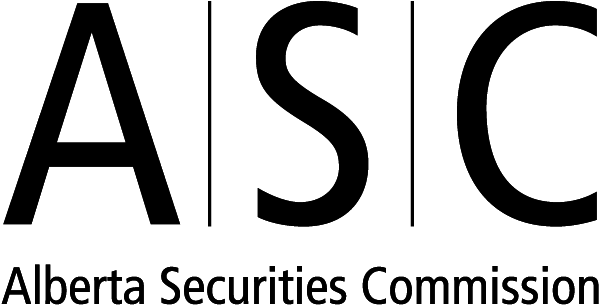Financial innovation in the capital markets
The ASC works with market participants who are engaged in using technology in new ways to understand how securities laws may apply to their ideas and proposed innovation.
CSA Regulatory Sandbox
ASC staff engage collaboratively through the Canadian Securities Administrators' (CSA) Regulatory Sandbox Committee – a cooperative initiative supporting financial technology (fintech) businesses looking to offer innovative products, services and applications in Canada.
For further information, please contact Denise Weeres, Director, New Economy.
International Affiliations
In addition to participating in the CSA Regulatory Sandbox committee, ASC staff participate with various national and international regulators in formal and informal collaboration respecting fintech. Formal fintech networks include:
- International Organization of Securities Commissions (IOSCO) ICO Network
- Global Financial Innovation Network (GFIN).
Does Alberta securities law apply to crypto-assets?
Crypto-assets, commonly referred to as cryptocurrency, have captured significant attention. Some of the more common crypto-assets include, Bitcoin, Litecoin and Ethereum.
Alberta securities law will apply to the trading of a crypto-asset if the crypto-asset is a security or a derivative, or if a crypto-asset is the asset underlying a derivative, or one of the assets in an investment pool in which interests are being offered to investors. Some crypto-assets that are used only as a form of payment or store of value and have not been issued as part of a capital raising effort, and have decentralized operations, may not be securities. However, some crypto-assets are.
CSA Staff Notice 46-307 Cryptocurrency Offerings provides guidance as to how securities law applies to crypto-assets. CSA Staff Notice 46-308 Securities Law Implications for Offerings of Tokens provides additional guidance respecting when a crypto-asset offered in an initial token offering or initial coin offering will be considered a security. Although they may be labelled ‘utility tokens’ the offering of tokens under an initial coin offering or an initial token offering generally appear to constitute a sale of securities.
If a crypo-asset is a security, it can be sold either with a prospectus or relying on one of the available prospectus exemptions or discretionary exemptive relief. Although securities sold under a prospectus are generally freely tradeable in a secondary market, resale restrictions apply to securities sold under prospectus exemptions. So unless discretionary exemptive relief is sought and obtained, crypto-assets sold under prospectus exemptions would not be available for secondary trading.
Online platforms that offer for sale crypto-assets that are securities or derivatives or facilitate their secondary trading are subject to securities law requirements relating to registration and/or marketplaces.
Even if a particular crypto-asset is not a security or a derivative, it is possible that the way it is traded on a platform (or cryptocurrency exchange) might create a derivative or a security and require the platform to comply with securities law requirements applicable to marketplaces.
Technically speaking, crypto-assets are digital coins, tokens or currencies that rely on distributed ledger technology and cryptography to permit the decentralized and secure holding and transfer of the value or interest represented by the coin, token or currency.
In layperson terms, crypto-assets include virtual currencies like Bitcoin, Ether, Litecoin and an extensive variety of other coins and tokens that may perform a function or serve as a form of payment within a particular platform or application or represent an interest in a company, enterprise, commodity or product. Many existing crypto-assets can be purchased by members of the public through a variety of trading platforms or in private transactions. New crypto-assets are constantly being created and are often offered for sale to members of the public through initial coin or token offerings.
Some crypto-assets are considered a "security" under Canadian securities laws. Canadian Securities Administrators Staff Notice 46-307 Cryptocurrency Offerings provides guidance as to when a crypto-asset might be considered a security. However, some cryptoassets are not considered a security under securities laws. Canadian securities laws may still apply if the crypto-asset is one of the assets in the investment portfolio of an investment fund or if it is the commodity or underlying interest of a futures contract or other derivative.
If the crypto-asset is not a security or a derivative and is not the underlying interest in an investment fund, trading of that crypto-asset will not be subject to regulation and oversight by any securities regulatory authority in Canada. In those cases, securities regulators will not be able to take compliance or enforcement action and other protections provided by securities law will not be available.
As with any investment, it’s important to do your own research and be aware of any risks associated with the investment. Despite their growing popularity, crypto-assets remain speculative, high-risk propositions for a number of reasons.
Investors should make sure they fully understand how crypto-assets work, know the many types of risk involved and understand that they may lose the entire value of their investment.
You should determine whether the crypto-assets involved would be considered to be a security or a derivative under Canadian securities laws and the laws of any foreign jurisdiction where you intend to do business or have clients. In Canada, if any of the crypto-assets are securities or derivatives, registration as a dealer or advisor may be required. Canadian Securities Administrators Staff Notice 46-307 Cryptocurrency Offerings provides some relevant guidance. National Instrument 31-103 Registration Requirements, Exemptions and Ongoing Registrant Obligations and its Companion Policy address the requirements for registration and provide some guidance as to when registration may be required. You should seek the advice of a securities lawyer to assist you in determining the application of any legal requirements, and how you would be able to meet those legal requirements.
You should determine whether any of the crypto-assets you intend to make available for trading on the platform would be considered to be a security or a derivative under Canadian securities laws and the laws of any foreign jurisdiction where you intend to do business or have clients. In Canada, if any of the crypto-assets are securities or derivatives, recognition as an exchange may be required. Canadian Securities Administrators Staff Notice 46-307 Cryptocurrency Offerings provides some relevant guidance. National Instrument 21-101 Marketplace Operation and its Companion Policy address the requirements for recognition as an exchange and provide some guidance as to when such recognition may be required. You should seek the advice of a securities lawyer to assist you in determining the application of any legal requirements, and how you would be able to meet those legal requirements.
You should determine whether the coin or token you intend to offer would be considered to be a security or a derivative under Canadian securities laws and the laws of any foreign jurisdiction where you intend to offer the coin or token. In Canada, if the coin or token is a security, you will need to consider and comply with the prospectus requirement or rely on a prospectus exemption. Canadian Securities Administrators Staff Notice 46-307 Cryptocurrency Offerings provides some relevant guidance in determining whether or not the coin or token is a security. If it is a security, National Instrument 45-106 Prospectus Exemptions sets out most of the available prospectus exemptions. To date, most ICOs and ITOs appear to be conducted under the "accredited investor" and "offering memorandum" prospectus exemptions in National Instrument 45-106 Prospectus Exemptions. If the coins or tokens are being offered through a website or portal that is in the business of trading or advising in securities, the dealer and/or adviser registration requirements, discussed above, will also apply. You should seek the advice of a securities lawyer to assist you in determining the application of any legal requirements, and how you would be able to meet those legal requirements.






